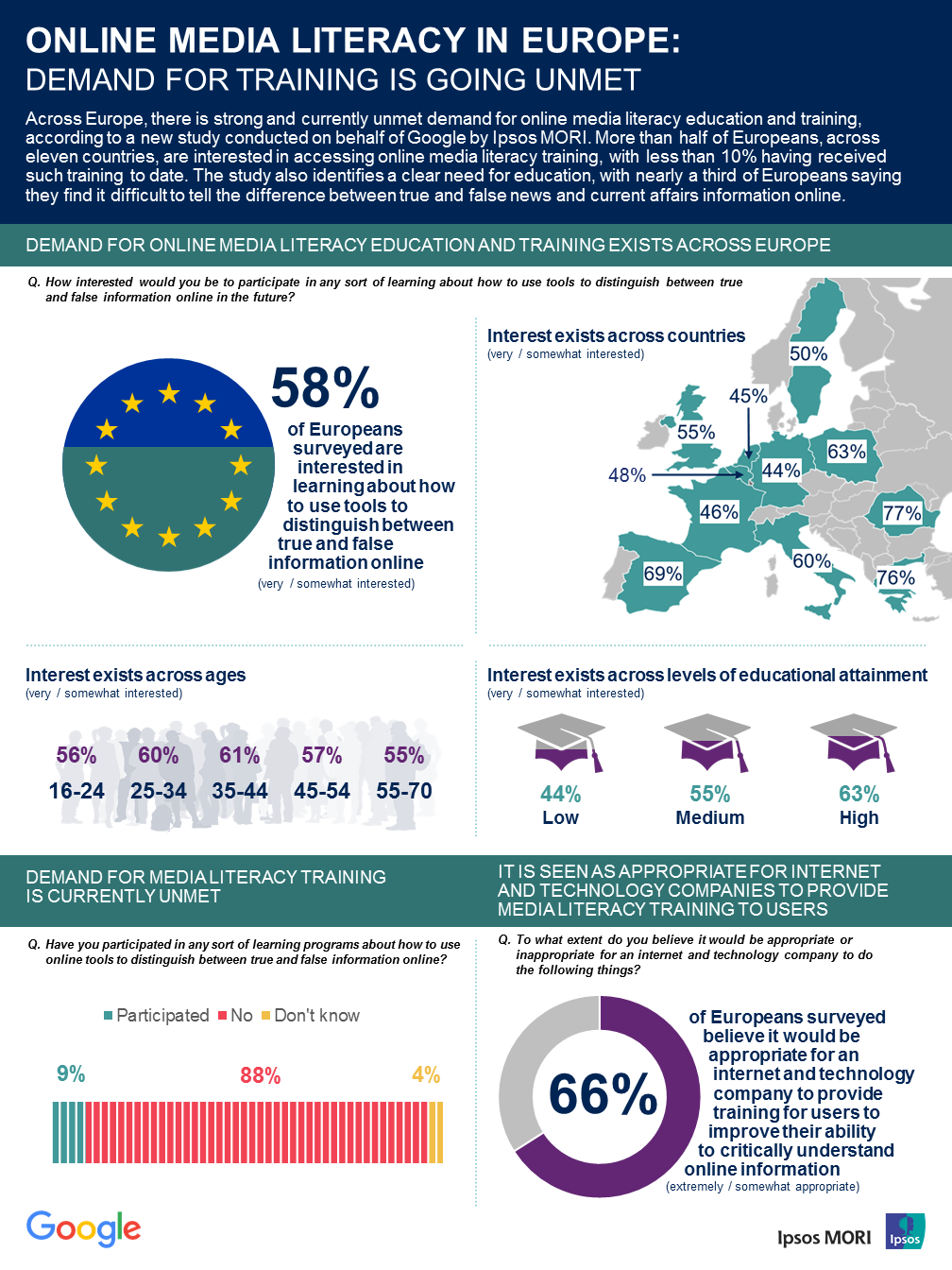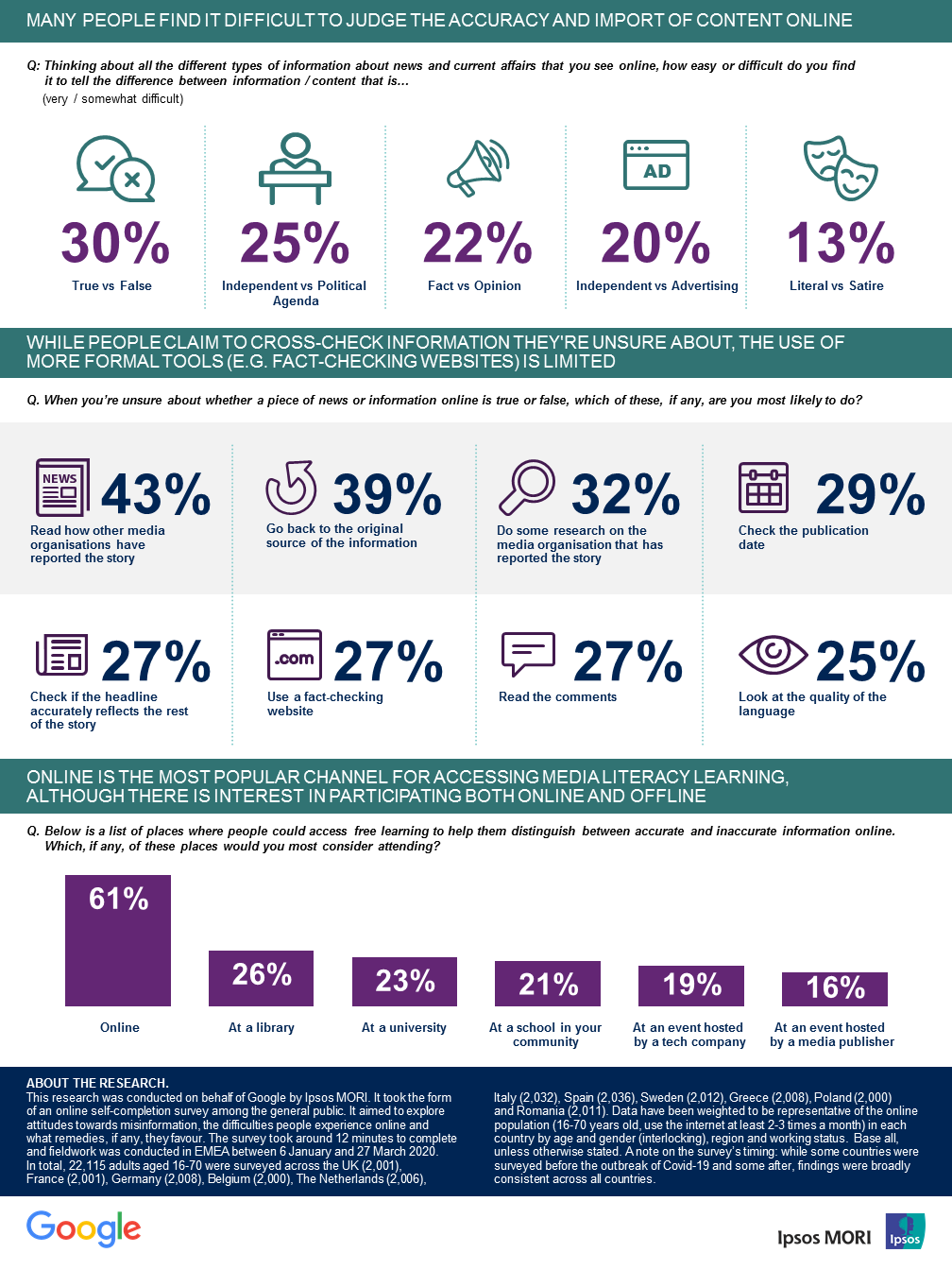Online media literacy: Across the world, demand for training is going unmet
Ipsos has undertaken survey research on behalf of Google, to explore general public attitudes towards misinformation, the difficulties people experience online and what remedies, if any, they favour.
The research found that across the world there is strong and currently unmet demand for online media literacy education and training. More than half of those surveyed are interested in accessing online media literacy training, with less than a third in any country having received such training to date. The study also identifies a clear need for education, with nearly a third of Europeans and at least a fifth of those outside Europe saying they find it difficult to tell the difference between true and false news and current affairs information online.
Infographic : EMEA


Technical Note
This research was conducted on behalf of Google by Ipsos. It took the form of an online self-completion survey among the general public. The survey took around 12 minutes to complete and fieldwork was conducted in EMEA between 6 January and 27 March 2020 and in non-European countries between 12 February and 18 June 2020.
In total, 35,030 adults aged 16-70 were surveyed across the UK (2,001), France (2,001), Germany (2,008), Belgium (2,000), The Netherlands (2,006), Italy (2,032), Spain (2,036), Sweden (2,012), Greece (2,008), Poland (2,000), Romania (2,011), Argentina (2,158), Australia (2,095), Brazil (2,194), India (2,170), Nigeria (2,289) and the US (2,009).
Data have been weighted to be representative of the online population (16-70 years old, use the internet at least 2-3 times a month) in each country by age and gender (interlocking), region and working status. (Except in Nigeria, which is weighted to be representative of the online population by age, gender and working status).



